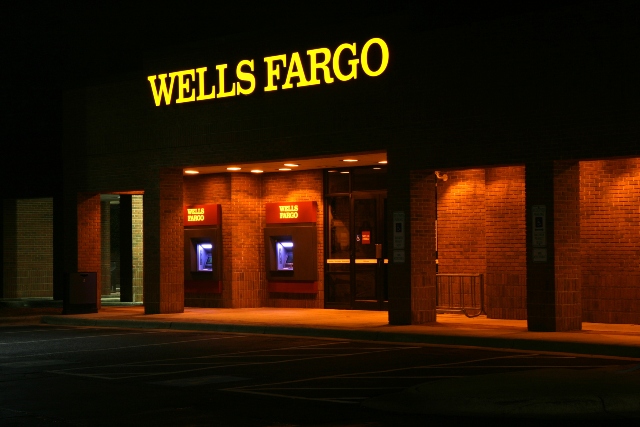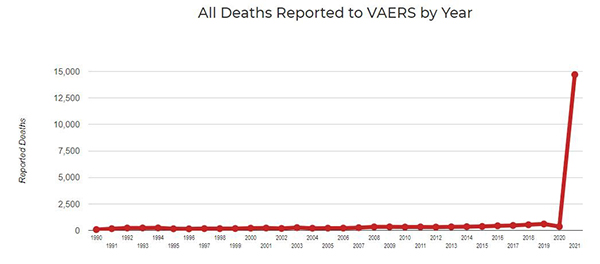Glitch? Wells Fargo bashed by bank account holders over missing deposits
08/09/2023 / By Belle Carter

The multinational financial services company Wells Fargo was mentioned and tagged in several posts on a microblogging social media platform last week because customers were enraged over missing deposits from their bank accounts.
Said clients contacted the bank via Twitter, now officially branded as ‘X,’ claiming they could not access money that they deposited into the bank. One account alleged that the firm stole $4,000 from him. Wells Fargo then overdrafted the customer’s account.
The bank responded to the irate customer. “Our technical teams are aware and are working to resolve this issue as soon as possible,” it said.
@wellsfargo.. you stole almost 4000 from me that I deposited on 8/2. I need my money now!!!! Then you have the balls to overdraft my account! @iamdonewithwellsfargo
— Vegas Daddy (@Randy08490149) August 3, 2023
Another client, an animal rescue in Georgia, also complained about missing deposits and negative balances. The customer service representative responded with the same excuse about a technical glitch and that the team is already looking into the issue.
We are missing thousands of dollars in sales deposits and your system says we are now negative thousands.
— M&B Farm & Hatchery Inc (@Mbfarmhatchery) August 4, 2023
It was unclear how widespread the problem was Thursday night, but as of Friday, customer complaints about the issue were still being posted on social media, and the bank continued to respond that it was working on a fix, CNN Business reported. “A limited number of customers were unable to see recent deposit transactions on their accounts. The vast majority have been resolved and the few remaining issues will be resolved soon. We sincerely apologize for any inconvenience,” a Wells Fargo spokesperson told the news outlet later that day.
This is the second time this year that bank customers have complained about deposits missing from their accounts. In March, the firm confirmed that some customers’ direct deposits were not showing up but that their accounts “continue to be secure.”
The bank has also been “under fire” in recent years. It settled with the Consumer Financial Protection Bureau in December, agreeing to pay customers $2 billion and a record $1.7 billion fine for “widespread mismanagement” over multiple years that harmed over 16 million consumer accounts. (Related: AI-powered bot successfully requested refund from Wells Fargo using FAKE voice.)

Its “fake accounts scandal” also created a national firestorm in 2016. In 2020, it settled with the SEC for $3 billion over fake accounts. It also admitted scandals in its auto loan and mortgage businesses. According to U.S. regulators, the bank wrongfully repossessed some borrowers’ vehicles, improperly charged fees, and interest, and failed to refund certain fees. It also improperly denied thousands of mortgage loan modifications, causing some customers to lose their homes in “wrongful foreclosure.”
Wells Fargo is the biggest offender in failing to maintain employee comms e-records
Barely rising above the recent tech issues in the faulty system over the weekend, Wells Fargo is facing another “trial” as regulators on Tuesday announced a combined $549 million in penalties against the company for its failure to maintain electronic records of employee communications. The Securities and Exchange Commission (SEC) revealed said charges and $289 million in fines against other firms for the “widespread and longstanding failures” in record-keeping, while the Commodity Futures Trading Commission (CFTC) also said it fined four banks a total of $260 million for failing to maintain records required by the agency.
“Today’s actions stem from our continuing sweep to ensure that regulated entities, including broker-dealers and investment advisers, comply with their recordkeeping requirements, which are essential for us to monitor and enforce compliance with the federal securities laws,” Sanjay Wadhwa, deputy director of enforcement at the SEC, said in the release. Wells Fargo, which is also the fourth-biggest U.S. bank by assets and a relatively small player on Wall Street, racked up the most fines with $200 million in penalties.
An analysis of 13 of its employees found that all had violated the bank’s communications policies by using text messages to communicate with co-workers and market participants. They used the side channels to communicate with more than 100 other employees, including senior supervisors, over thousands of messages, according to the CFTC complaint. “Employees’ use of unapproved communication methods was not hidden within the firm,” the paper included. “To the contrary, certain supervisors – the very people responsible for supervising employees to prevent this misconduct – routinely communicated using unapproved methods on their personal devices.”
But according to the bank’s spokeswoman Laurie Kight: “We are pleased to resolve this matter.”
Meanwhile, French banks BNP Paribas and Societe Generale were fined $110 million each, while the Bank of Montreal was fined $60 million. The SEC also fined Japanese firms Mizuho Securities and SMBC Nikko Securities and boutique U.S. investment banks including Houlihan Lokey, Moelis, and Wedbush Securities.
SEC also ordered to “cease and desist” from future violations and hire consultants to review bank policies.
Glitch.news contains more stories related to this.
Sources for this article include:
Submit a correction >>
Tagged Under:
cease and desist, CFTC, controversies, fake accounts, fine, Glitch, mismanagement, missing deposits, money supply, negative balances, record-keeping, scandals, SEC, settlement, tech issues, Wall Street, Wells Fargo, wrongful foreclosure, X
This article may contain statements that reflect the opinion of the author
RECENT NEWS & ARTICLES
COPYRIGHT © 2017 COLLAPSE.NEWS
All content posted on this site is protected under Free Speech. Collapse.news is not responsible for content written by contributing authors. The information on this site is provided for educational and entertainment purposes only. It is not intended as a substitute for professional advice of any kind. Collapse.news assumes no responsibility for the use or misuse of this material. All trademarks, registered trademarks and service marks mentioned on this site are the property of their respective owners.




















